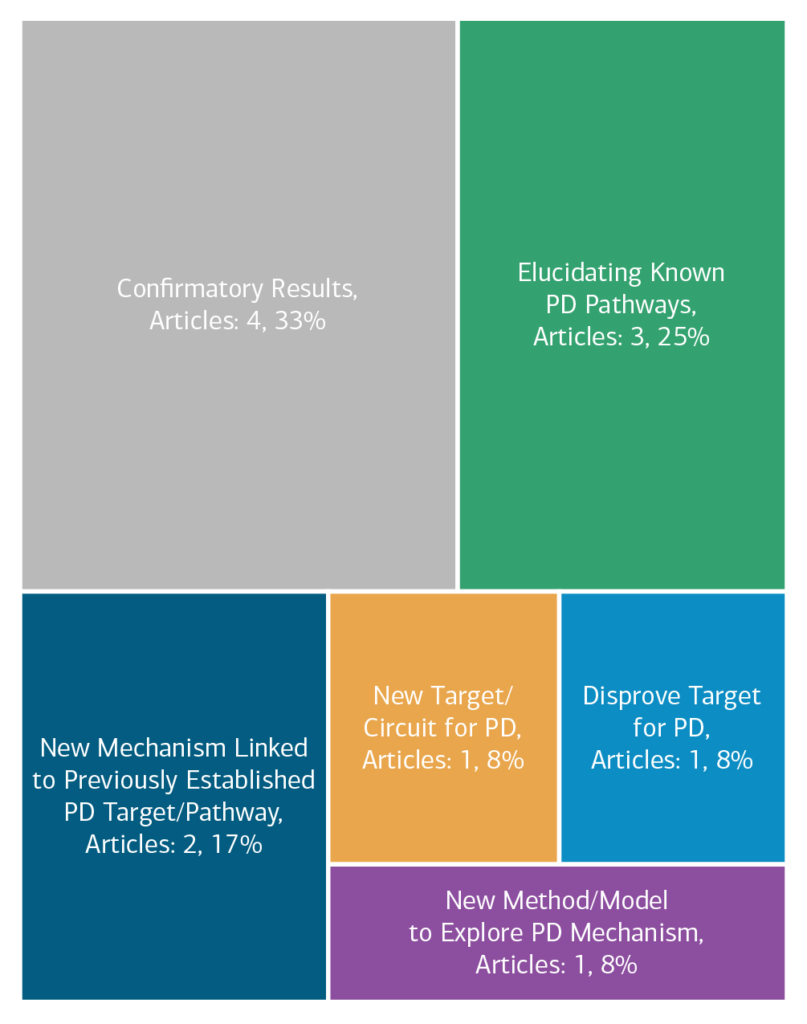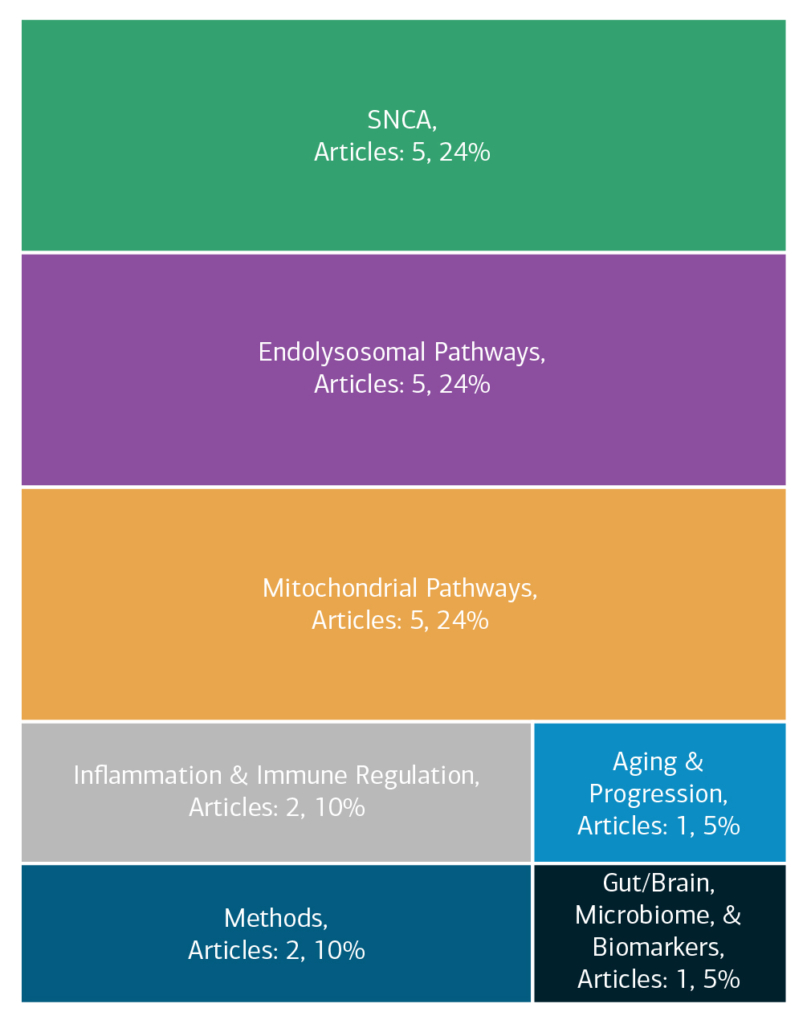Neuro-immune Interactions | 2020
The Genome-Microbiome Axis in the Cause of Parkinson Disease: Mechanistic Insights and Therapeutic Implications from Experimental Models and a Genetically Stratified Patient Population
Study Rationale: Mutations in the gene for glucocerebrosidase (GBA) increase alpha-synuclein expression and are common in Parkinson disease (PD). However, only about a third of people with GBA mutations get PD. Research suggests that the increase in the alpha-synuclein protein associated with PD may come from the gut and travel along nerves that go to the brain. The microbiome environment, including an increase in gut alpha-synuclein and inflammation, may be a causal link between GBA mutations and PD.
Hypothesis: Team Schapira thinks that the combination of one’s genetic makeup and microbiome are important in their risk for getting PD. The team will look at people with GBA mutations to see if their risk for PD is caused by their gut bacteria, and to see if their bacteria increase alpha-synuclein transport from gut to brain.
Study Design: Team Schapira will use mouth and fecal samples from people with GBA-PD to identify the bacteria special to them and how these might increase alpha-synuclein and cause PD. The team will also use special lab models to study the changes that link the bacteria and inflammation to alpha-synuclein and its spread from the gut to the brain. Team Schapira will explore methods to change the bacterial composition of the microbiome to see if this can stop alpha-synuclein transport to the brain.
Impact on Diagnosis/Treatment of Parkinson’s Disease: This research may provide insight into which GBA mutations carriers are most likely to get PD and whether bacterial profile changes will alter alpha-synuclein transport. Being able to predict PD onset may allow Team Schapira to find a treatment window to prevent disease onset altogether. Further, this research may open more avenues for drug repurposing to find compounds that alter microbiome composition in ways that are beneficial for halting alpha-synuclein transport.
Leadership
Project Outcomes
Team Schapira will clarify the role of intestinal bacteria in Parkinson disease, understand its interaction with glucocerebrosidase mutations – a genetic cause of the disease, and provide insight into potential new therapeutic targets. View Team Outcomes. View Team Outcomes.
Team Outputs
Click the following icons to learn more about the team’s outputs:
Overall Contributions
Here is an overview of how this team’s article findings have contributed to the PD field as of November 2023. There are two different categorizations of these contributions – one by impact to the PD community and a second by scientific theme.
Impact

Theme

Featured Output
Below is an example of a research output from the team that contributes to the ASAP mission of accelerating discoveries for PD.
Glucocerebrosidase is imported into mitochondria and preserves complex I integrity and energy metabolism
Several studies suggest mitochondrial impairment in PD, although it is still unclear whether such mitochondrial defects are primary causes of neurodegeneration or secondary causes. Furthermore, impairment of mitochondrial metabolism and dynamics has been observed in a variety of cellular models of GCase deficiency and patient neurons. However, the mechanisms leading to mitochondrial dysfunction in these models are unknown. A novel function for GCase outside of the lysosome is presented. The team shows that a fraction of GCase can be imported into the mitochondria where it can impact mitochondrial quality control mechanisms. This data presents a role for GCase outside of the lysosome.
Team Accolades
Members of the team have been recognized for their contributions.
- Open Science Champions: Michael Hurley
- Network Spotlights: Michela Deleidi, Marco Toffoli, Sofia Koletsi, Mathieu Almeida
- Awards
- COSA Prize Winners 2022: Hariam Raji, Second Place
- 2023 Collaborative Meeting: Christin Weissleder, Third Place Winner in Neuro-Immune; London
Other Team Activities
- Working Groups:
- Clinical & Immune – Anthony Schapira (Co-Chair)
- Microbiome – Mathieu Almeida (Co-Chair)
- Interest Groups: Gut/Brain, Microbiome, and Clinical Biomarkers – Anthony Schapira (Co-Chair)
In the News
- University College London: Parkinson’s disease research at UCL gets £19M boost (University of College London, press release, September 16, 2020)












